#onlinecomics
Explore tagged Tumblr posts
Text

New webcomic strip!
The lips are sealed between Boniface 🙁 (the emoji with the existential crisis) and Sherry T. Perry 🤷♀️ (the EVERYwoman).
Special thanks to X for the Twemoji open source project, Emojipedia, as well as Emily Dennis!
#emojipalooza#boniface#sherrytperry#emoji#emojis#twemoji#twemojis#webcomic#webcomics#webcomicstrip#webcomicstrips#comic#comics#comicstrip#comicstrips#digitalcomic#digitalcomics#digitalcomicstrip#digitalcomicstrips#onlinecomic#onlinecomics#onlinecomicstrip#onlinecomicstrips
4 notes
·
View notes
Text
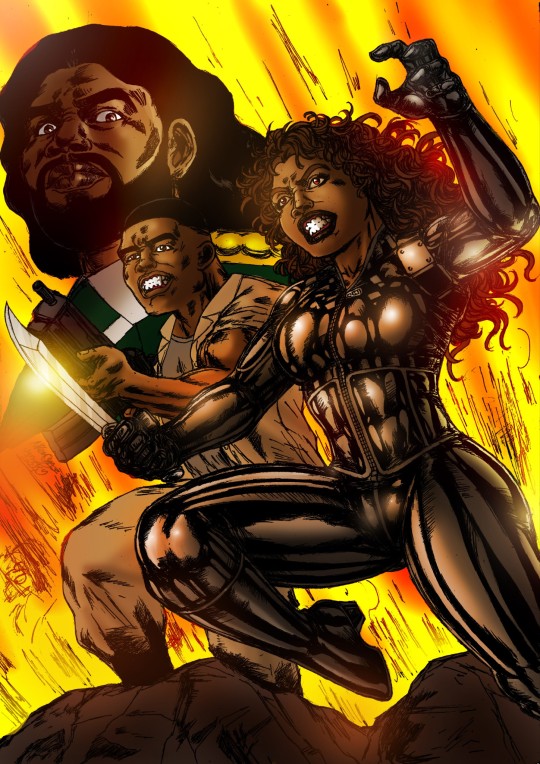
Cover of RENEGADE ORDER issue 1, a comic book from the Zero Unit series, written and illustrated by me
#art#comics#illustration#cartoon#comic character#comicbooks#thezerounit#martial arts#illustrator#action#indiecomics#creatorownedcomic#comic art#webcomic#online#onlinecomics#military#femme fatale#femalecharacters#female character design#catsuit#leather#secret agent#jen hara#malcon#soldier#comic books#graphic art#drawing#nkemshq
2 notes
·
View notes
Text

We are launching our newest platform!
Bringing kids back to reading. Now do it on your digital screen…
Read the latest episodes of your favorite comics in an exciting and adventurous journey into the unknown!
At our exclusive area for comics in English, Hindi, and Malayalam.
#comicsreading#webcomics#onlinecomics#indiancomics#comicsreadingsite#illustration#anime and manga#comics
0 notes
Text
Things always seem to be complicated for Lydia especially when she finds herself falling for her new boss who happens to be dating her best friend!!!
How complicated can things get for this lonely city girl? Read Exclusively On Boobics


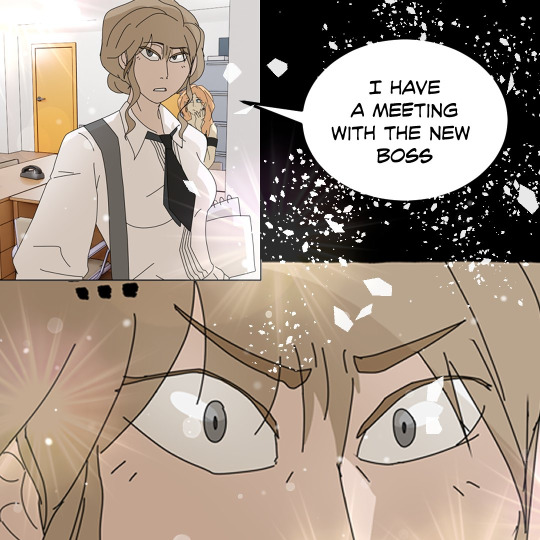
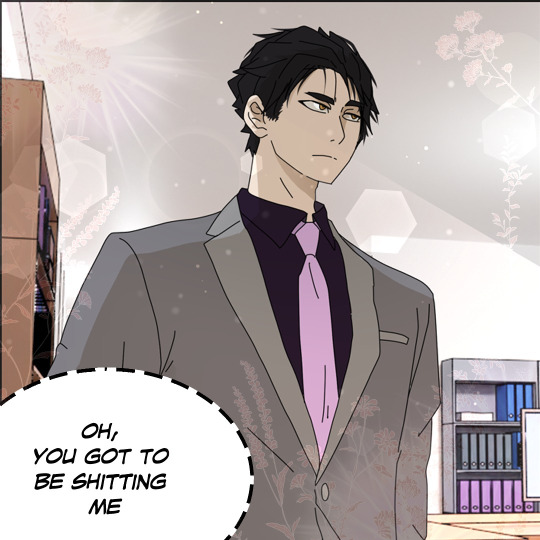
#boobibcs#itsyou#exclusive#webcomic#webcomics#onlinecomic#onlinecomics#manga#comic#comics#romanticcomedy#comedy#romance#anime#artists#design#novel#manhwa#bossgirl#girlpower#lovetriangle#sexyromance#citygirl#story#lovestory#romanticaffair#forbiddenlove#quirky#illustration#art
0 notes
Text

Queen Amarlia concept art
#vampire#vampirequeen#femalevampire#vampirelady#originalcharacter#originalcharacters#bruxa#vampirefantasy#fantasycharacters#fantasyart#fantasy#ravenhive#comic#onlinecomic#dnd
3 notes
·
View notes
Text

I can say and type whatever I want: Can you really?
#avielavenantelawpractice#law#aalawsng#nigerianlawfirm#nigerianlaw#humanrights#freedomofspeech#onlinespeech#cyberbullying#onlinecomments#trolling
0 notes
Text
I've just started posting pages from the Golden AGe to GlobalComix, and want to publish it in its entirety as an online webcomic before someday going to print. If you would like to read the Golden Age in its entirety please follow its progress on GlobalComix. The first twelve pages will be free to read here on Tumblr as well as GlobalComix, however subsequent pages will require a subscription in order to be viewed. If you like what you see here on Tumblr or on GlobalComix, please consider supporting, God bless.
0 notes
Text
#Reviews
My previous post (the post added earlier today) made me think of the first signature assignment I prepared at NCU, which was on online reviews. While preparing that signature assignment, I learned that a consumer review is considered more believable if it is balanced or neutral. One-sided reviews are not as believable. The analysis provided additional information on why a review may be one-sided. A review may be one-sided or biased because of the reviewer’s field of specialization, beliefs, or background/experiences. The motivation for some of the reviews seemed to be to contribute to the discussion or add their “two cents. The intent was not always clear. It is interesting that the concept map I prepared as a step towards the signature assignment – based on selected papers in the literature – did not provide much information on intent. (Link to concept map: https://fahmeenaodetta.blogspot.com/2022/06/signature-assignment-on-online-reviews.html)
I found an article (research) on the PhD experience. I did not know there was research on this.
0 notes
Text
Analysis of the viewer commentaries to the YT video "Trump: This was the most embarrassing moment in US history" by Fox News
youtube
Many comments lack subject knowledge, logical reasoning, and facts
Most commenters show bias and lack objectivity
Civility and relevance are also frequently lacking
Overall quality is evaluated as fair to poor
Comments rely heavily on anecdote and opinion over evidence
Logical fallacies are common, especially argument from personal experience, ad hominem attacks, and hasty generalizations
Arguments are mostly emotive and inconsistent, with few counterarguments
Comments reveal weak ethical reasoning and consideration for social impacts and the common good
They exhibit tendencies of in-group favoritism, confirmation bias, and affective polarization
Negative emotions like anger and fear outweigh positive emotions
Expressions reveal more autocratic than democratic inclinations
Here are the usual evaluation criteria for opinion-based comments, along with my evaluation of the given comments per each criteria:
Subject knowledge: The knowledge and expertise of the commenters regarding the subject matter. Evaluation: The majority of the comments do not demonstrate extensive subject knowledge on political issues. Many are opinionated but lacking in-depth facts or analysis.
Logical reasoning: The use of logic, facts and evidence to support arguments. Evaluation: Most comments lack logical reasoning and rely primarily on opinions, beliefs and rhetoric. Few cite concrete facts or evidence to support their positions.
Relevance: The degree to which the comments are on topic and pertinent to the discussion. Evaluation: While most comments are broadly relevant to the topic of Donald Trump and U.S. politics, many stray into tangential issues or side topics.
Objectivity: The comments are free from bias, prejudice or skewed perspectives. Evaluation: The vast majority of comments show a clear bias and partisan perspective, with few attempting an objective or balanced viewpoint.
Civility: The comments are respectful, polite and avoid ad hominem attacks. Evaluation: Though most comments are not overly crude or impolite, several directly criticize or insult political figures and those with opposing views. Civility is generally lacking.
In summary, based on these usual evaluation criteria for opinion-based comments, the overall quality is fair to poor. Most comments would benefit from demonstrating greater expertise, logic, objectivity, and civility while remaining properly focused and relevant to the topic. The qualitative weaknesses are typical of open online comment sections.
Based on the comments provided, I would evaluate the status as follows:
Science vs Fiction: The comments fall firmly on the fiction side of the spectrum. They are opinions, anecdotes and rhetoric, not based on scientific analysis or evidence.
Empirical vs Anecdotal: The vast majority of comments are anecdotal in nature, based on personal opinions, beliefs and experiences. There is little use of empirical data or statistics.
Fact vs Opinion: Almost all the comments represent opinions, not facts. There are few verifiable facts cited to support the various arguments. The language used is largely emotive and opinionated.
Objective vs Subjective: The comments show a high degree of subjectivity, reflecting the personal biases, preferences and perspectives of the commenters. There are few attempts at an objective or dispassionate analysis of the issues.
In summary, the comments exhibit many of the characteristics of casual discussion rather than rigorous analysis or debate. They rely heavily on anecdote, opinion and subjectivity, with little use of empirical data, facts or objective reasoning. This likely reflects the open, informal nature of the online comment section in which they appear. While some views may resonate emotionally, most would lack persuasive power in a more critical or evidentiary discourse.
Based on my review of the comments, I identified the following logical fallacies:
Ad hominem - Several comments directly attack and insult political figures instead of addressing their positions.
Argument from personal experience/anecdote - Many comments cite anecdotes and personal experiences as arguments, which are not generally representative or conclusive.
False dichotomy - Some comments frame the issues in black and white terms, presenting only two extreme options when more nuanced alternatives exist.
Hasty generalization - Some commenters generalize from limited evidence or a single or few examples to broad conclusions.
Loaded language/emotive words - The majority of comments use emotionally charged or slanted language, indicating a biased perspective.
Straw man - Several comments misrepresent or exaggerate the arguments of those with opposing political views to make them easier to counter.
Appeal to tradition/sentiment - A few comments justify their positions based on nostalgia, national pride or "the good old days" rather than facts or evidence.
Black-or-white/all-or-nothing thinking - Some comments view political issues, people and situations in extreme, uncompromising terms with little acknowledgment of complexity or nuance.
In summary, the logical fallacies that appear most frequently in the comments are: use of loaded language, arguing from anecdotal experience, ad hominem attacks, hasty generalizations, straw man arguments and false dilemmas. All of these weaken the persuasiveness and logical integrity of the arguments expressed.
Based on my review, I would evaluate the arguments in the comments as follows:
Strengths:
Some comments express passionate and strongly held views on important political issues. The discourse, though informal, indicates a level of civic engagement among the commenters.
A few comments attempt to logically defend their positions with premises and reasons to support their conclusions, though these arguments remain largely undeveloped.
Weaknesses:
Most arguments are largely emotive, relying predominantly on rhetoric, subjective language and anecdotal evidence rather than sound logical reasoning and facts.
Many arguments contain logical fallacies as noted in my previous summary, undermining their cogency and persuasiveness.
Most arguments exhibit a high degree of bias, partisanship and lack of objectivity, limiting their credibility and openness to alternative views.
Many arguments lack clarity and specificity, making it difficult to fully evaluate their strength since key premises and conclusions remain vague or implied.
Very few counterarguments or responses to opposing views are provided, indicating a lack of critical interaction and debate among the commenters.
In summary, while the comments express passionate views on important issues, the informal and open-ended nature of the dialogue, combined with a heavy reliance on subjective anecdote over logic and evidence, results in arguments that are generally weak and unpersuasive. The discourse would benefit from greater clarity, substantiation with facts, acknowledgement of alternative perspectives, and logical responses to counterarguments.
Overall, I would evaluate the strength of the arguments in the comments as fairly weak due to the predominance of the weaknesses noted above. However, there is certainly potential for more rigorous and insightful debate if the commenters were willing to engage in a more objective, fact-based and civil discourse.
Based on my review of the comments, I would evaluate the ethics as follows:
Lack of moral basis for political claims: Many comments express strong political positions but fail to ground them in moral principles or considerations of the common good. They tend to reflect ideologies and partisan stances rather than a coherent ethical framework.
Little consideration for social impacts: Most comments advocate political policies and views with little acknowledgment or discussion of their ethical implications in terms of how they may impact society's most vulnerable groups. There is a lack of concern for social justice and equity.
Political ends justify means: Some comments imply that desired political outcomes justify almost any means used to achieve them, with little regard for ethical norms, values or fair processes. There seems to be an "ends justify the means" mentality.
Casual incivility and disrespect: Though not overly offensive, several comments exhibit a casual incivility, disrespect or contempt toward political figures and those with opposing views. There is a lack of consideration for the intrinsic worth of all persons.
Tribal, zero-sum approach: Many comments reflect a "zero-sum," tribal approach where one political faction "winning" requires the other "losing," rather than a positive-sum approach seeking solutions that can benefit all groups in society.
In summary, I would characterize the ethics reflected in the comments as generally weak. There is a lack of concern for moral principles, justice, fair treatment of others and the common good - elements foundational to robust political ethics. Many comments exhibit a partisan, "winner takes all" mentality with little regard for the dignity and interests of those seen as political opponents.
The informal and open-ended nature of the online discussion may contribute to this ethical deficit. More structured debate focused on moral reasoning and implications for society as a whole may help surface a more ethically grounded approach to the issues discussed.
Based on my review of the comments, I would make the following psychological observations:
Strong affective polarization: Many comments exhibit the psychological phenomenon of "affective polarization" where partisans have negative feelings toward the opposing party and its supporters, which can increase extreme attitudes and distrust.
Confirmation bias: Most comments reflect a confirmation bias where commenters selectively attend to information that confirms their existing views while ignoring or discounting disconfirming information. This reinforces preexisting opinions.
In-group favoritism/out-group hostility: Some comments demonstrate in-group favoritism toward those who share their political views coupled with hostility toward the out-group of political opponents, a common psychological tendency.
Desire for social identity/tribalism: Many comments express a desire for a strong social identity and sense of belonging through alignment with a political group or "tribe." This tribal loyalty seems to override concerns for facts or the common good.
Need for certainty/closure: Several comments exhibit an intolerance for ambiguity and a desire for certainty and closure on complex political issues, even without sufficient facts to justify conclusiveness. This psychological need may outweigh veracity.
Limited perspective-taking: There is little evidence that commenters are considering the viewpoints and experiences of those with opposing political perspectives, indicating a lack of psychological skill in cognitive perspective-taking.
In summary, the comments demonstrate several cognitive and social psychological phenomena that contribute to political polarization and strong partisan attitudes. Greater self-awareness of these psychological factors and skills in cognitive reappraisal, perspective-taking and critical thinking could help commenters engage more productively across differences.
Based on my analysis of the comments, I identified the following emotions:
Anger: Several comments express frustration, irritation and anger toward political opponents and the opposing party, particularly the Biden administration. The language used conveys dissatisfaction and outrage.
Fear: Some comments exhibit fear-based appeals, suggesting threats to American values, power, security and way of life under the current administration and political climate. Cautions of "wokeness," decline and World War III also indicate fear.
Nostalgia: A few comments express sentiments of nostalgia and longing for a romanticized past era under the Trump administration, appealing more to emotion than facts.
Pride: Some comments convey national pride and a desire to see America regain its global standing and influence, though this often seems tied to a partisan political agenda.
Hope: Several pro-Trump comments express hope that he will return as president to "fix" the country and restore American prosperity and power on the global stage. The language conveys optimism and possibility.
Disgust: Negative descriptions of opponents, their policies and behaviours seem aimed at eliciting disgust or disdain, particularly in critical comments about Trump.
In summary, the dominant emotions expressed in the comments seem to be:
Negative - Anger, fear and disgust toward political opponents
Positive - Hope for a preferred political outcome and some pride in American global power
However, many of the emotional appeals appear polarizing, partisan and exaggerated. A more balanced approach that considers complexities and alternative perspectives may yield insights to temper strong negative emotions and channel positive ones in more constructive ways.
Based on the details in the comments, I would evaluate the position of the commenters as follows:
More Autocratic:
Many comments express support for strong, even authoritarian, leadership with few checks on power.
Some express nostalgia for an era with less "political correctness" and perceived restrictions on speech.
Those who strongly favor Trump's policies appear willing to accept unilateral executive actions to achieve desired political ends.
Comments critical of opponents exhibit a lack of tolerance for alternative views and policies.
More Democratic:
Some commenters criticize both political parties, indicating a desire for a more representative system.
A few comments advocate for a focus on social justice, equity and the interests of vulnerable groups.
There are calls for greater moral reasoning and consideration for the common good beyond partisan interests.
Several oppose the "tribal" and "winner takes all" approach reflected in some comments.
However, on the whole, most of the details in the comments would suggest:
Limited respect for political opposition and alternative views
A paucity of deliberative discussion focusing on facts, evidence and the public interest
Favoring strong leadership over checks and power balancing
Inclinations toward unilateral action and imposition of one's policy preferences
Therefore, while a few democratic sentiments emerge, the prevalent characteristics in the comments would place most commenters closer to the autocratic end of the spectrum in terms of their expressed political preferences, tendencies and ideologies.
#PoliticalDebate#OnlineComments#CriticalThinking#FactChecking#PartisanDivide#EmotionalPolitics#Democracy#CheckYourBias#LogicalFallacies#EthicalReasoning#TrumpSupporters#PerspectiveTaking#CivicEngagement#PsychologyOfPolitics#PoliticalPsychology#UnethicalRhetoric#Republicans#OnlineIncivility#AffectivePolarization#WeakArguments#ConfirmationBias#FoxNews#Youtube
0 notes
Text

New webcomic strip!
Boniface 🙁 (the emoji with the existential crisis) gets trolled when attempting to bond with their adopted son.
Special thanks to X for the Twemoji open source project, Emojipedia, and Emily Dennis!
#emojipalooza#boniface#emoji#emojis#twemoji#twemojis#webcomic#webcomics#webcomicstrip#webcomicstrips#comic#comics#comicstrip#comicstrips#digitalcomic#digitalcomics#digitalcomicstrip#digitalcomicstrips#onlinecomic#onlinecomics#onlinecomicstrip#onlinecomicstrips
2 notes
·
View notes
Photo

Jen Hara, character from the Zero Unit comic series, currently digitally published on selar and Patreon , links in my bio #art #draw #desenho #artistofinstagram #pencilartwork #comicbooks #originalcharacter #thezerounit #selar #nigeria #nigeriancomics #patreonsupport #support #onlinecomics #creatorownedcomic #explore #creator https://www.instagram.com/p/CqC8ACaseb9/?igshid=NGJjMDIxMWI=
#art#draw#desenho#artistofinstagram#pencilartwork#comicbooks#originalcharacter#thezerounit#selar#nigeria#nigeriancomics#patreonsupport#support#onlinecomics#creatorownedcomic#explore#creator
7 notes
·
View notes
Text
A few new counter displays to promote HoCo and sell some sweet stickers.
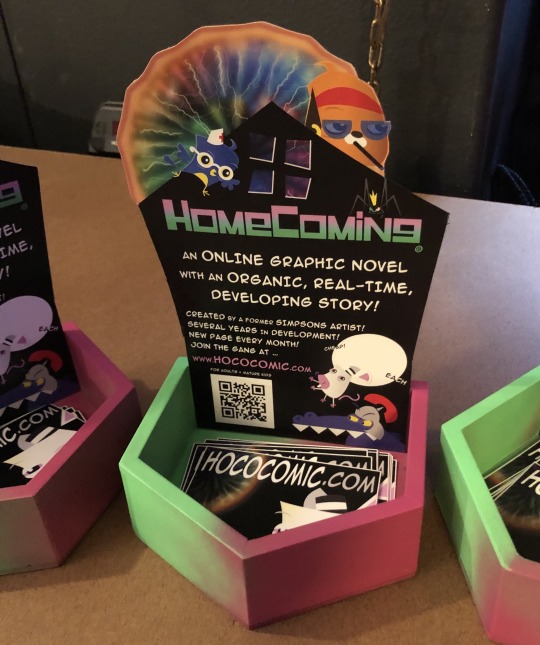

#graphicnovel#hococomic#comicbooks#characterdesign#comics#illustration#independentcomics#onlinecomic#webcomic
0 notes
Text
Talking to crows was not something Jake had in mind, but one fateful night changed it all… School, bullies, controlling one’s ability and fending off unwanted visitors can be quite complicated for this 16-year-old boy!!🤯🔥💥⚡️💖
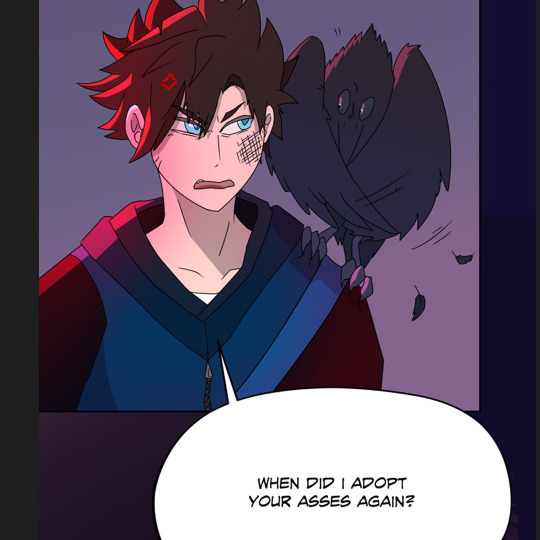
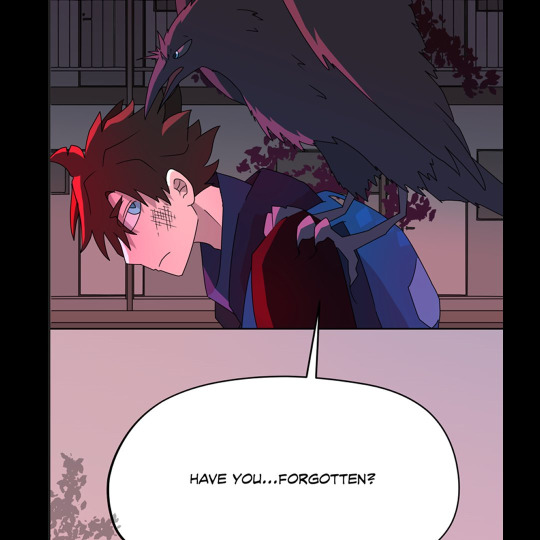
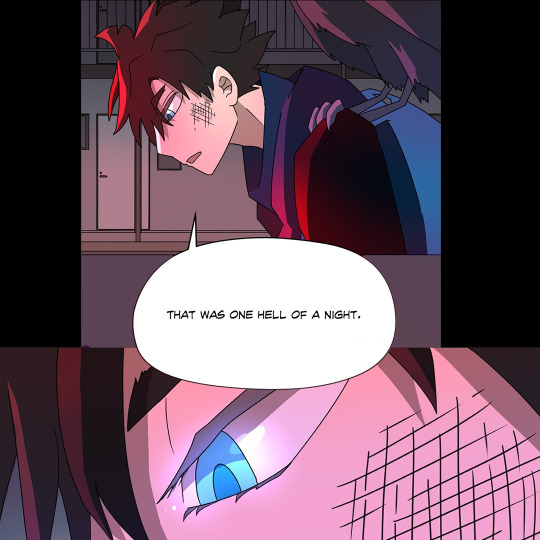
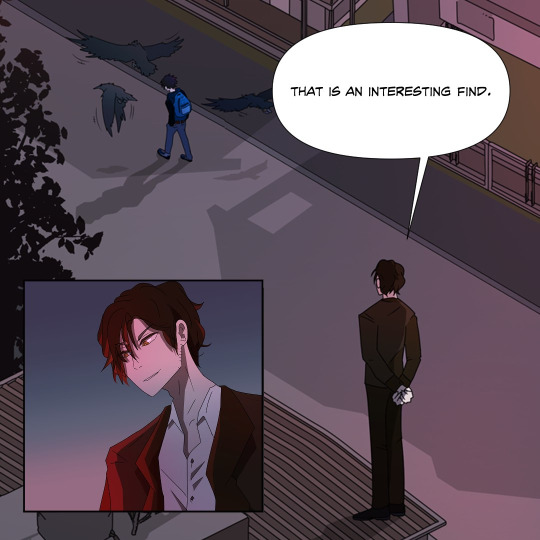
#boobics#leashed#exclusive#webcomic#webcomics#onlinecomic#onlinecomics#manga#comic#comics#magic#fantasy#magicalpower#power#powers#japanesecomic#anime#artists#design#romance#comedy#novel#manhwa#illustration#art#drawing#digitalart#crows#creatures#talkingcreatures
0 notes
Text

Queen Amarlia other forms concept
#vampire#vampirequeen#femalevampire#vampirelady#originalcharacter#originalcharacters#bruxa#vampirefantasy#fantasycharacters#fantasyart#fantasy#ravenhive#comic#onlinecomic#dnd
3 notes
·
View notes
Photo

Among the Jonn'Qarra, he is known as Behemoth. As if his towering stature and distinctive horns weren't enough to distinguish him amongst his brethren, Behemoth also possess phenomenal strength, the likes of which he seemingly only has to test to see how far it can go. Trapped in an alternate universe for ages, Behemoth is one of two heralds sent forth to search for their jailers: The insurgent group of Jonn'Qarra known only as SURGE. Having emerged even stronger and filled with a quiet rage that has simmered for millenia, Behemoth will find SURGE and show them the true depths of oblivion.
0 notes
Photo

This Shit is Bananas - A new comic from Embrace the Weird! I present to you, a brief sort-of-true history of bananas! Exclusively online only on our #patreon page: https://www.patreon.com/posts/78092065?utm_campaign=postshare_creator #onlinecomic #webcomic #weirdcomic #bananaComic #patreoncreator #patreoncomic https://www.instagram.com/p/CoJjNaQu2t4/?igshid=NGJjMDIxMWI=
1 note
·
View note